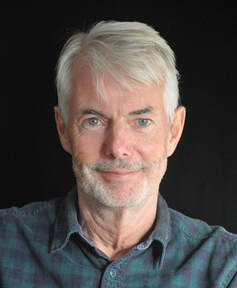|
We're asking some of our Reading the Forest friends for their top five favourite books - no reason really, though they could make for some inspirational ideas if you're wondering what to read next! Follow us on Facebook and Twitter as over the next couple of weeks we share their top fives. Join the conversation and add your top five reads too, on Facebook or here in the comments box. We're starting with the top five from none other than local award-winning author Andrew Taylor... Andrew Taylor's Top 5 Books Dennis Potter - The Changing Forest (1962) "I find this short book sums up so much of the Forest for me. Potter had an insider’s understanding of it, bred into him, together with an outsider’s perspective and a talent for writing. I’ve read the book several times over the last forty years and always found something new to admire and enjoy. Meanwhile, the Forest is constantly changing, as it should…" Guiseppe di Lampedusa - The Leopard (1958) "This is a wonderfully evocative historical novel set in nineteenth-century Sicily, when the fragmentary states that made up Italy were on the verge of unification. The central character is a magnificent middle-aged prince who slowly and reluctantly realises that he has to come to terms with the changing world around him." Ronald Blythe - Akenfield (1969) "In the 1960s, Blythe compiled a sort of oral survey of the inhabitants of two Suffolk villages. Here are people of all ages and backgrounds. They describe their lives, their aspirations, their memories and their fears. Blythe keeps his overt editorial presence to a minimum. Once again, it’s a book about a changing world. (Hmm, I sense a theme here.) Samuel Pepys - The Diary (written 1660-69) "At present I’m writing a series set in Restoration in England, and Samuel Pepys is making my job much easier than it otherwise would have been. Once you acclimatise to the archaic English, it’s as if you are directly inside the head of a medium-ranking civil servant on the make who confides everything to his diary - from his bowel movements to affairs of state. It’s endlessly fascinating because he puts up no barriers. But beware: the Diary as a whole runs to 1.25 million words." Patricia Highsmith - The Talented Mr Ripley (1955) This crime novel - far darker than the film versions - had quite an impact on me: I read it as I was on the verge of writing my first novel, so I’m sentimentally attached to it. Highsmith showed me that your protagonist could turn out to be a murderer, that crime novels could be about committing crimes as much as solving them.
3 Comments
|
Archives
June 2024
|
 RSS Feed
RSS Feed


